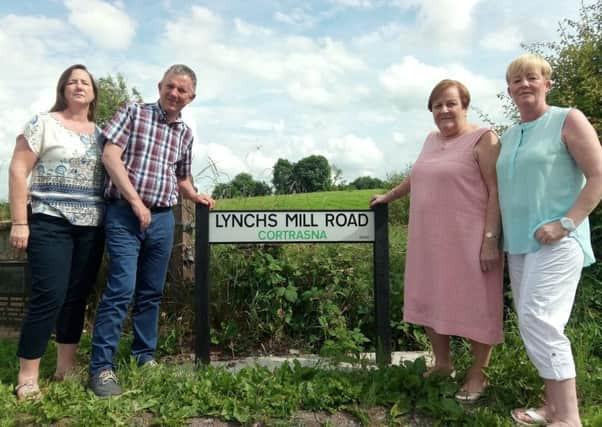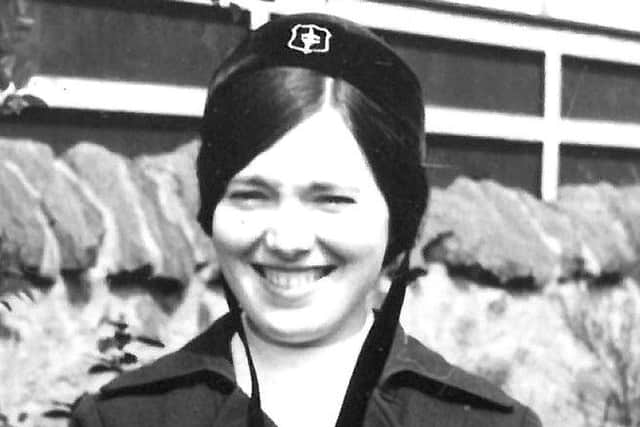UDR man’s family breaks silence over ‘pension plan for terrorists’


Grant Weir suffered a catastrophic brain injury when his Land Rover passed an improvised device contained in a pig trailer on the main Rosslea to Lisnaskea Road in 1979.
Speaking to the News Letter ahead of today’s anniversary, Grant’s family has spoken out for the first time over concerns that the current “morally repugnant” definition of a victim will become enshrined in law.
Advertisement
Hide AdAdvertisement
Hide AdThe IRA killers involved in the attack held a family hostage while they lay in wait for a passing UDR patrol – occupying a vantage point with a clear view of both the Lynchs Mill Road junction and a number of women at the adjacent bus stop. The blast claimed the life of 32-year-old Faith Mission worker Sylvia Crowe who had been waiting for a bus.


Grant’s sister Michelle Nixon has been her brother’s full-time carer for the past ten years. He requires assistance to walk as well as round-the-clock care to meet all of his basic needs.
She said that although a special pension for Troubles victims would help make adjustments to her home to make it safer and more comfortable for 62-year-old Grant, to provide respite care, and to pay for essentials such as hearing aids, she would not accept a penny if it meant those responsible were also entitled to such a pension.
“I know if Grant was able, he would say that he wouldn’t take it. It would mean the perpetrator getting paid and glorified for what he did to Grant,” she said.
Advertisement
Hide AdAdvertisement
Hide Ad“The moment that bomb went off it changed all of our lives forever, and it has affected three generations of our family.


“The first thing that needs changed is the definition of a victim. There is no way the man that did this to Grant is a victim. It is so wrong, that people would seek to put my brother in the same category as the perpetrator. We are not a political family, and this is the first time we have ever spoken publicly as a family.”
Sister Debbie Palmer said her family, like all of the others that were targeted in Fermanagh by the IRA, put their faith in the justice system rather than harbour thoughts of revenge.
She believes the attempts to “reward” injured terrorists with a government pension – as outlined in the 2014 Stormont House Agreement – creates a bogus equivalence.
Advertisement
Hide AdAdvertisement
Hide Ad“It is absolutely outrageous. It makes me sick to my stomach that the people who have damaged and destroyed so many lives would be equated with Grant,” she said.
Debbie, who was nine-years-old when the attack took place, said no other country would allow terrorists to be equated to their victims in such a “morally repugnant” way.
“To able to see those ladies at the bus stop and still hit that bomb trigger is absolutely unthinkable,” she added.
Love for veteran whose smile ‘lights up the room’
Grant’s smile and infectious chuckle can light up a room but it’s never too long before the day-to-day hard work of caring for her brother pose further difficulties for his main carer Michelle Nixon.
Advertisement
Hide AdAdvertisement
Hide AdSurrounded by his loving family, severely injured former UDR and Royal Engineers soldier Grant Weir is thriving and coping as well as can be expected, but as his close family gets older they worry about what will happen when they no longer have the required strength to cope.
Michelle says her brother is a joy to have around despite the hardships caused by his physical and psychological injuries.
Grant’s aunt, Phyllis Taylor, is able to laugh about Grant’s stubbornness in refusing to use a wheelchair, but she’s finding it increasingly difficult preventing her nephew from falling over when she helps out with the caring duties.
“Everybody loves Grant and it’s like switching on a light everywhere he goes,” she said.
Advertisement
Hide AdAdvertisement
Hide Ad“As time goes on, Grant is taking a few falls and when we go out anywhere he now has to have two people with him. He is very good natured but there is a lot of frustration. He knows what he wants to say but just can’t put it into words most of the time.”
Grant’s sister Debbie Palmer said: “In moments he can talk about the past. If we talk to him about being in the Engineers and then transferring to the UDR, he’ll joke: ‘What an eejit hey’. He is mainly jovial, but there are times when he will go quiet, and you’ll know there’s something bothering him.
“He’ll say, ‘never married; no family; that aul’ bomb hey’. So he does obviously think about what he’s lost and missed.”
Michelle Nixon added: “And always when he talks about the bomb he will always talk about Sylvia Crowe was killed. He forgets everybody else’s name but he never forgets Sylvia. He can remember some things that he did before the bomb, but if we ask him where he was today he’ll have no memory.”
Advertisement
Hide AdAdvertisement
Hide AdThe family strongly believes the full implementation of the Military Covenant in Northern Ireland – in line with England, Scotland and Wales – would provide greater access to healthcare and welfare services for Grant.